Fletcher delivered an incredible speech in support of Autism Awareness Month. He shed light on what autism is and shared insights into how it manifests in the real world.

From Jonty's introduction, “In his speech, Fletcher will discuss a topic of personal significance that holds importance for us all. As he speaks, pay attention to how he addresses key aspects of brotherhood. By stepping forward today, Fletcher demonstrates courage and initiative, qualities we should all aspire to embody.Let us reflect on his words and consider how they resonate with our own character."
Fletchers SpeechKia ora, nau mai, haere mai. Tena koutou, tena koutou, tena tatou katoa.Kia ora, as many of you know, I’m Fletcher Tilyard and I’m a Year 11 student and I have been attending JMC since Year 7. You may have noticed that there’s something different about me: I have autism and I’m here today to speak about awareness of autism. April is the International Autism Awareness Month. It’s estimated that ASD (that’s Autistic Spectrum Disorder) is present in 1 out of every 42 men. So out of the 530 students at JMC, around 13 of us will have autism. Autism is not a mental illness. It is a neurological difference - one of many types of neurodiversity.
Autistic peoples’ brains work differently, but just how differently that depends on the person. You see, every autistic person is unique.
As the saying goes, “if you have met one autistic person, you have met one autistic person.” The reason why Autism is so different from person to person is that it is not one single condition. No, it is a cluster of lots of neurological differences that are present in varying combinations. These differences may share common traits (like maybe finding it difficult to look someone in the eye or read social situations) but they show up in different ways in each person. Autism may mean you’re extra loud or that you can’t bear loud noises.ASD is considered an invisible condition: you can’t tell that someone has Autism just by looking at them, but their differences may result in some behaviour that you find a little odd or even downright strange. However, these same differences can also give people with ASD specific skills, or superpowers, such as superior visual memory, and amazing attention to detail.For example, I have an extraordinarily good eye for detail and I have a truly amazing memory for sports facts and figures. Need to know something, anything, about the Premier League? Then I’m your man! But my working memory is not so good. You might have to remind me of what we’ve just learnt in Science. Likewise, my amazing eye for detail doesn’t work for social and emotional cues; I honestly often just cannot tell whether you’re having a friendly joke or being downright rude. In that case, my reaction to you might not be what you were expecting. That’s where you, as McGlashan students, come into the picture. I’m trying to raise your awareness of Autism so that you know to look out for it and know that your actions and reactions can make such a positive difference for people with neurodiversity. So what can you do? Please start by standing up for people with autism. Don't let others put them down or talk negatively about them. Ensure that neuro-diverse individuals feel welcomed and valued in your class and are treated with respect just like everyone else. Please treat us with the same patience you like to be treated with. Thank you for listening.



 Open Event Registration - Interested in enrolling?
Open Event Registration - Interested in enrolling? Employment opportunities - click if you're interested in working at McGlashan.
Employment opportunities - click if you're interested in working at McGlashan.